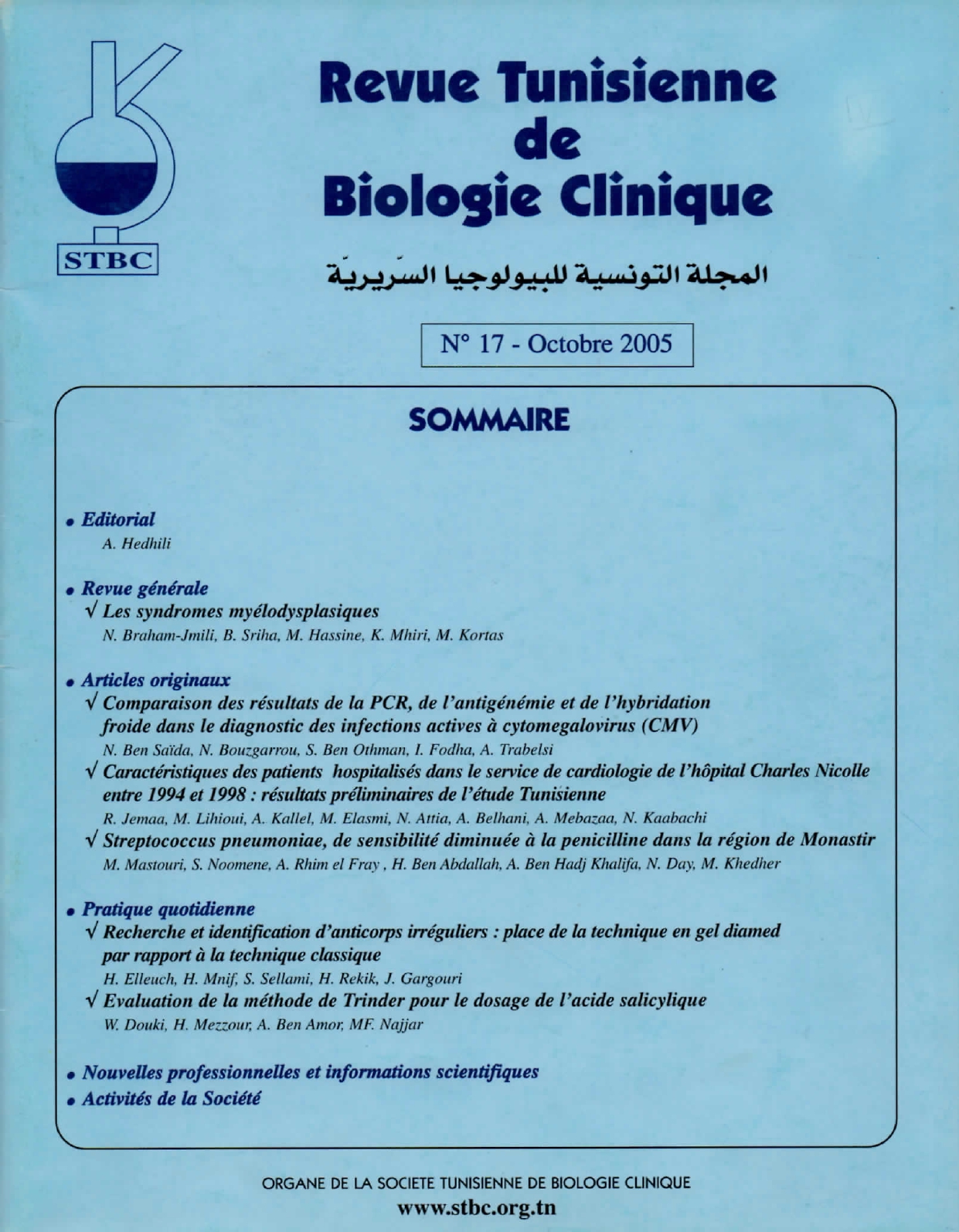Abstract
Diagnosing active CMV infections continues to pose challenges regarding the choice of techniques and the interpretation of results. New immunological and molecular techniques developed in recent years have improved this diagnosis. In our study, we aimed to compare the results of PCR, antigenemia, and cold hybridization during suspected active CMV infection. We began by searching for IgG/IgM serological markers for 16 whole blood samples from 4 kidney transplant recipients, 4 kidney transplant candidates on hemodialysis, and two healthy volunteers, as well as 12 cerebrospinal fluid (CSF) samples from children admitted to pediatrics for suspected CNS infection. For the volunteers and transplant candidates, the serological profile was IgG+ IgM-. This same profile was observed for two of the kidney transplant recipients, despite having an active CMV infection confirmed by antigenemia and PCR. The other two transplant recipients had anti-CMV IgM: PCR followed by agarose gel electrophoresis was negative for the two controls (healthy volunteers), the asymptomatic former transplant recipient, and the hemodialysis patients. However, it was positive for 6 out of 7 samples from the 3 kidney transplant recipients with clinical signs suggestive of active CMV infection and positive antigenemia; Out of the 12 CSF samples, PCR followed by agarose gel electrophoresis was positive for only one case. Our study demonstrated, despite the relatively small number of samples, that PCR is the most sensitive technique. Antigenemia, which has the same specificity as PCR, remains more accessible to clinical virology laboratories. It also allows monitoring of treatment by quantifying infected cells. However, its major limitation remains the low number of leukocytes in several patients, especially those with renal insufficiency.

This work is licensed under a Creative Commons Attribution 4.0 International License.
Copyright (c) 2005 Revue Tunisienne de BIOLOGIE CLINIQUE

